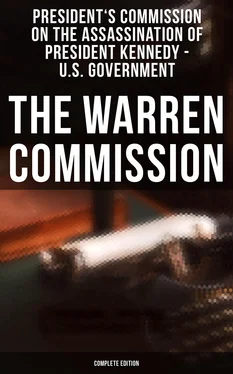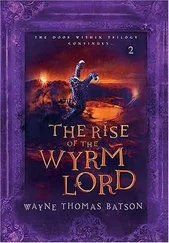I would say that to Lee—that Lee could not really do much for Cuba, that Cuba would get along well without him, if they had to.
Mr. Rankin. You would tell that to him?
Mrs. Oswald. Yes.
Mr. Rankin. And what would he say in return?
Mrs. Oswald. He shrugged his shoulders and kept his own opinion. He was even interested in the airplane schedules, with the idea of kidnapping a plane. But I talked him out of it.
Mr. Rankin. The airplane schedules from New Orleans?
Mrs. Oswald. New Orleans—but—from New Orleans—leaving New Orleans in an opposite direction. And he was going to make it turn around and go to Cuba.
Mr. Rankin. He discussed this with you?
Mrs. Oswald. Yes.
Mr. Rankin. When did his Fair Play for Cuba activity occur—before or after he lost his job?
Mrs. Oswald. After he lost his job. I told him it would be much better if he were working, because when he didn't work he was busy with such foolishness.
Mr. Rankin. What did he say about that?
Mrs. Oswald. Nothing. And it is at that time that I wrote a letter to Mrs. Paine telling her that Lee was out of work, and they invited me to come and stay with her. And when I left her, I knew that Lee would go to Mexico City. But, of course, I didn't tell Mrs. Paine about it.
Mr. Rankin. Had he discussed with you the idea of going to Mexico City?
Mrs. Oswald. Yes.
Mr. Rankin. When did he first discuss that?
Mrs. Oswald. I think it was in August.
Mr. Rankin. Did he tell you why he wanted to go to Mexico City?
Mrs. Oswald. From Mexico City he wanted to go to Cuba—perhaps through the Russian Embassy in Mexico somehow he would be able to get to Cuba.
Mr. Rankin. Did he say anything about going to Russia by way of Cuba?
Mrs. Oswald. I know that he said that in the embassy. But he only said so. I know that he had no intention of going to Russia then.
Mr. Rankin. How do you know that?
Mrs. Oswald. He told me. I know Lee fairly well—well enough from that point of view.
Mr. Rankin. Did he tell you that he was going to Cuba and send you on to Russia?
Mrs. Oswald. No, he proposed that after he got to Cuba, that I would go there, too, somehow.
But he also said that after he was in Cuba, and if he might go to Russia, he would let me know in any case.
Mr. Rankin. Did he discuss Castro and the Cuban Government with you?
Mrs. Oswald. Yes.
Mr. Rankin. When did he start to do that?
Mrs. Oswald. At the time that he was busy with that pro-Cuban activity. He was sympathetic to Castro while in Russia, and I have also a good opinion of Castro to the extent that I know. I don't know anything bad about him.
Mr. Rankin. What did he say about Castro to you?
Mrs. Oswald. He said that he is a very smart statesman, very useful for his government, and very active.
Mr. Rankin. What did you say to him?
Mrs. Oswald. I said, "Maybe." It doesn't make any difference to me.
Mr. Rankin. Did you know he was writing to the Fair Play for Cuba organization in New York during this latter period in New Orleans?
Mrs. Oswald. Yes.
Mr. Rankin. Did he show you that correspondence?
Mrs. Oswald. No.
Mr. Rankin. How did you learn that?
Mrs. Oswald. He told me about it. Or, more correctly, I saw that he was writing to them.
Mr. Rankin. Did you write the Russian Embassy in regard to your visa from New Orleans.
Mrs. Oswald. Yes.
Mr. Rankin. Do you recall what address you gave in New Orleans when you wrote?
Mrs. Oswald. No, I don't remember. Sometimes I would write a letter, but Lee would insert the address and would mail the letters. That is why I don't remember.
Mr. Rankin. Did you get your mail in New Orleans at your apartment or at a post office box?
Mrs. Oswald. No, we had a post office box, and that is where we received our mail.
Mr. Rankin. Did your husband have any organization in his Fair Play for Cuba at New Orleans?
Mrs. Oswald. No, he had no organization. He was alone. He was quite alone.
Mr. Rankin. When did you learn about his arrest there?
Mrs. Oswald. The next day, when he was away from home overnight and returned, he told me he had been arrested.
Mr. Rankin. What did he say about it?
Mrs. Oswald. He was smiling, but in my opinion he was upset. I think that after that occurrence—he became less active, he cooled off a little.
Mr. Rankin. Less active in the Fair Play for Cuba?
Mrs. Oswald. Yes. He continued it, but more for a person's sake. I think that his heart was no longer in it.
Mr. Rankin. Did he tell you that the FBI had seen him at the jail in New Orleans?
Mrs. Oswald. No.
Mr. Rankin. Did he complain about his arrest and say it was unfair, anything of that kind.
Mrs. Oswald. No.
Mr. Rankin. Did you know he paid a fine?
Mrs. Oswald. Yes.
Mr. Rankin. Did you have anything to do with trying to get him out of jail?
Mrs. Oswald. No.
He was only there for 24 hours. He paid his fine and left. He said that the policeman who talked to him was very kind, and was a very good person.
Mr. Rankin. While you were in New Orleans, did you get to know the Murrets?
Mrs. Oswald. Yes. They are his relatives. I think that Lee engaged in this activity primarily for purposes of self-advertising. He wanted to be arrested. I think he wanted to get into the newspapers, so that he would be known.
Mr. Rankin. Do you think he wanted to be advertised and known as being in support of Cuba before he went to Cuba?
Mrs. Oswald. Yes.
Mr. Rankin. Do you think he thought that would help him when he got to Cuba?
Mrs. Oswald. Yes.
Mr. Rankin. Did he tell you anything about that, or is that just what you guess?
Mrs. Oswald. He would collect the newspaper clippings about his—when the newspapers wrote about him, and he took these clippings with him when he went to Mexico.
Mr. Rankin. Did the Murrets come to visit you from time to time in New Orleans?
Mrs. Oswald. Yes—sometimes they came to us, and sometimes we went to them.
Mr. Rankin. Was that a friendly relationship?
Mrs. Oswald. I would say that they were more of a family relationship type. They were very good to us. His uncle, that is the husband of his aunt, was a very good man. He tried to reason with Lee after that incident. Lee liked them very much as relatives but he didn't like the fact that they were all very religious.
When his uncle, or, again, the husband of his aunt would tell him that he must approach things with a more serious attitude, and to worry about himself and his family, Lee would say, "Well, these are just bourgeois, who are only concerned with their own individual welfare."
Mr. Krimer. The word Mrs. Oswald used is not quite bourgeois, but it is a person of a very narrow viewpoint who is only concerned with his own personal interests, inclined to be an egotist.
Mr. Rankin. Did you hear the discussion when the uncle talked about this Fair Play for Cuba and his activities?
Mrs. Oswald. Yes.
Mr. Rankin. What did the uncle say to your husband about that?
Mrs. Oswald. At that time. I did not know English too well, and Lee would not interpret for me. He only nodded his head. But I knew that he did not agree with his uncle. His uncle said that he condemned that kind of activity.
Mr. Rankin. What was your husband's attitude about your learning English?
Mrs. Oswald. He never talked English to me at home, and did not give me any instruction. This was strictly my own business. But he did want me to learn English. But that was my own concern. I had to do that myself somehow. That is the truth.
Mr. Rankin. Did any of your Russian friends visit you at New Orleans?
Mrs. Oswald. No.
Mr. Rankin. Outside of the Murrets, were there some people from New Orleans that visited you at your home in New Orleans?
Читать дальше












